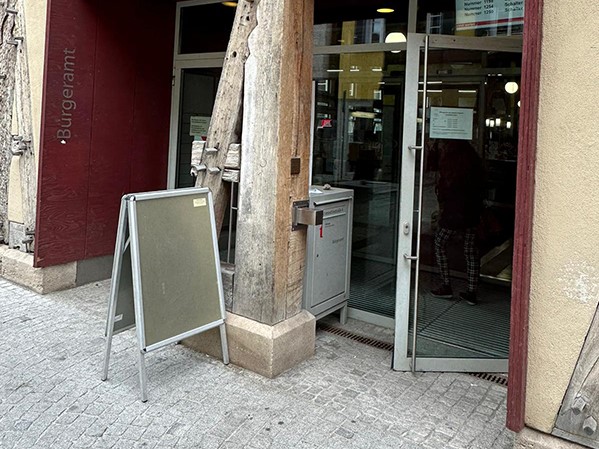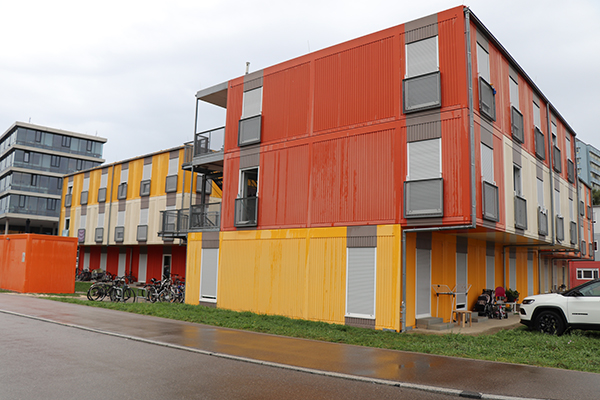By Ute Kaiser and Lobna Alhindi
A man begs customers at a bakery in Damascus for a loaf of bread. His neat clothes suggest that he was once better off. A single mother of four in a refugee camp in northern Aleppo province searches through trash bins for leftover food. Like other parents, she often goes without a meal. There should be more for her children.
Aid organizations such as Action Against Hunger, the World Food Program (WFP) and Welthungerhilfe are ringing the alarm about the humanitarian catastrophe in Syria. Their assessment after eleven years of war, violence and destruction is bleak. The World Food Program WFP currently reports that around 12.4 million Syrians are suffering from hunger. That is about 60 percent of the population. Action Against Hunger states that more than 90 percent of people in Syria live in poverty.
There are multiple reasons for the suffering in the country besides the war. One of them is drought, as in some provinces of Afghanistan. The wheat harvest in Syria this year is expected to be less than half of the 2021 harvest, according to WFP estimates. By comparison, that would be only a quarter of the average yield of the pre-war harvests.
The economic crisis, high unemployment and huge inflation are adding to the hardship of the population also plagued by Corona. “Essentials such as water, food, fuel and electricity have become so expensive that households have to spend an average of 50 percent more than their income to provide themselves with the most basic necessities,” said Jan Sebastian Friedrich-Rust, executive director of Action Against Hunger.
tünews INTERNATIONAL asked on the ground. A family living in Al Raqqa compiled a list of prices from 2020 and today for commercial quantities: Oil has increased in price from 500 to 10,000 Syrian pounds, flour from 150 to 2,300, sugar from 1,000 to 4,500, rice from 200 to 3,000, pita bread from 125 to 1,200. Meat is a luxury good. Its price rose from 3,000 to 16,000. But many families can hardly afford vegetables either. Eggplants now cost 4,500 instead of 150 pounds, courgettes 3,000 instead of 100, and tomatoes 2,500 instead of 300. Even simple medicines put an enormous strain on household budgets. Paracetamol now costs 1,500 instead of 500 pounds, cough syrup 4,000 instead of 600 and antibiotics 6,000 instead of 600. These prices from early April are only rough guidelines. They are constantly rising.
The war in Ukraine is further exacerbating the crisis. Russia and Ukraine were the main exporters of grain to the Middle East. Supply shortages continue to drive up prices for flour and bread there as well. “The majority of Syrians no longer know where they will get their next meal,” the WFP site says. A WFP survey found that families are being forced to eat only twice a day instead of three times. The survey also found that more people are having to sell property to pay for food.
The economic crisis, like the war in Ukraine, has also affected the approximately one and a half million Syrians who have fled to Lebanon. A comparison between today and 2019: At that time, many food items in Lebanon, such as flour, rice, sugar, legumes, oil, milk for babies and some medicines, were subsidized by the state. In 2019, a family of five refugees received $125 a month from the UN. This was enough to cover their monthly needs for subsidized food, reports a local family.
This year, each adult refugee in Lebanon receives 300,000 Lebanese pounds (LBP) a month from the UN, or about $13. A bundle of flatbread currently costs 10,000 LBP.
The Lebanese currency has lost about 90 percent of its value since 2020. Many things are now unaffordable. A kilo of meat currently sells for 300,000 pounds – the entire monthly allowance of an adult. For other necessities, a family has to chip in. A bottle of gas for cooking, which lasts about two weeks, currently costs LBP 420,000.
A person who fled to Lebanon was paid about $600 for full-time work in 2019. That was about LBP 900,000 at the time. That money could buy a lot. Today, the employer pays a million pounds, only $50 at the current unofficial exchange rate – and says workers should be happy to have a job at all.
See: https://de.wfp.org/krisen/syrien, https://www.aktiongegendenhunger.de/presse/elf-jahre-krieg-in-syrien and https://www.welthungerhilfe.de/winterhilfe-spenden/
tun22041903
www.tuenews.de
Damaskus. Foto: Oula Mahfouz.




